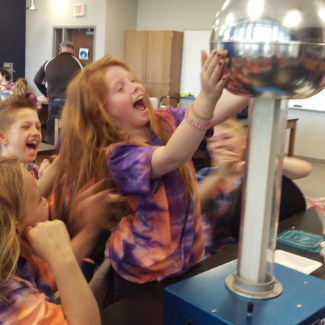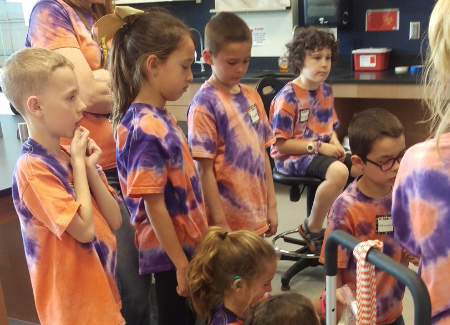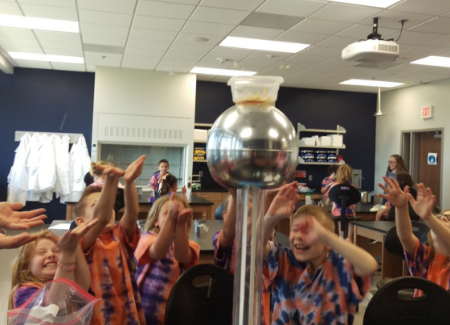The second-grade class from Belle Plaine Elementary in Kansas came to Newman University for hands-on science activities April 15. When Brandi Boese, a Newman alumna and one of the school’s second-grade teachers, reached out to the university to hold this event, Newman’s chemistry club said they were happy to take on these young learners.
Boese earned her elementary education degree from Newman. She felt this would be a great experience since many of her students are interested in science.
“I completed a middle-school science endorsement with my degree, so I know Newman’s science department is the best,” Boese said. “And [I] knew the awesome professors there would be able to make this experience happen.”
Newman student Leah Graham serves as the president of the chemistry club, who heard about this opportunity from Ryan Huschka, Ph.D., associate professor of chemistry and chemistry club advisor. Graham stated this is not the first time the club has done something like this.

The chemistry club has brought science experiments to middle schools in the past.
“This year, we wanted to do some kind of service activity with younger students to get them engaged in science, and this opportunity presented itself,” Graham added.
There were several stations with various activities prepared. Many Newman students were available to teach and demonstrate the activities. Huschka was also involved; he taught the young students about electricity using the Van de Graaf generator and demonstrated a flame test with various metals.
At another station, the second-graders made ice cream by using salt and ice to freeze the cream. Yeast, dish soap, food coloring and hydrogen peroxide were combined to create “elephant toothpaste” at another station. The group was also taken on a tour of the Bishop Gerber Science Center as part of the “scientist for a day” activity.

The goal is “to help the kids feel like they were able to interact with science and learn new things,” Graham said. “Science is a hard topic to present at a young age, so we were hoping to keep them engaged and learn. We wanted the students to feel welcomed and feel interested in the experiments we were holding.”

Boese hoped this experience would encourage her students to learn more about science.
“I love science and just want to share that love with them,” she explained. “I feel like this is an important time in their lives to give them a taste of how great science can be. This might just be the spark they need.”

